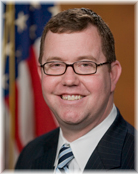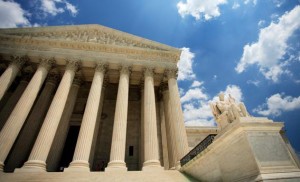The Author of the White Paper, Stuart Delery, Argues Selective, Misleading Disclosures Should Not Be Checked by FOIA
As I noted in this post, Daniel Klaidman has identified the author of the targeted killing white paper as Stuart Delery.
At the time he wrote the white paper, Delery was Senior Counselor to Attorney General Eric Holder. Last March, he became Principal Deputy Assistant Attorney General in the Civil Division of DOJ and, in the absence of an Assistant AG (or, as far as I can tell, even a nominee, in which case this feels a lot like what George Bush did with Steven Bradbury when he left the Acting head in charge for years on end), the Acting head of the Civil Division.
As I also noted, Delery actually argued the government’s case in the ACLU’s Drone FOIA on September 20, 2012. Now, that’s the ACLU’s other drone FOIA, not the one specifically requesting information that should have included the unclassified white paper Delery wrote if DOJ had answered the FOIA in good faith.
Nevertheless, it asked for closely related information:
The Request seeks a variety of records relating to the use of unmanned aerial vehicles to conduct targeted killings, including the legal basis for the strikes and any legal limits on who may be targeted; where targeted drone strikes can occur; civilian casualties; which agencies or other non-governmental entities may be involved in conducting targeted killings; how the results of individual drone strikes are assessed after the fact; who may operate and direct targeted killing strikes; and how those involved in operating the program are supervised, overseen or disciplined.
At the time ACLU submitted the request on January 13, 2010, Delery was in the Deputy Attorney General’s Office. DOJ responded to its part of the FOIA on February 3, 2010 — 16 days after DOJ worked on a briefing on targeted killing Eric Holder would make to President Obama and 15 days after he delivered that briefing — by claiming only FBI would have responsive records. When FBI searched its records it found none. DOJ made that initial response 6 days before someone in DAG — Delery’s office — wrote an email to OLC about the Holder briefing.
So while DOJ’s non-responsiveness in the drone FOIA is not as egregious as it was in the Awlaki FOIA, it’s still clear that the department Delery worked in, if not (as in the Awlaki FOIA) Delery’s work itself, was shielded from FOIA by a disingenuous FOIA response.
Yet Delery, the Acting head of the Civil Division, nevertheless decided he should argue the government’s case. Technically, Delery was arguing for CIA’s right to pretend it hadn’t confirmed its role in drone strikes in spite of repeated public statements doing just that, so he wasn’t defending the non-disclosure of his Department’s work, per se. Still, it’s not generally considered good form for a lawyer to argue a matter in which he has been so closely involved. He did so, however, at a time before we knew just how centrally involved he was in this matter.
With all that in mind, I thought I’d look at what Delery said to the DC Circuit.
MR. DELERY: May it please the Court, Stuart Delery for the Appellee, CIA.
This Court in several cases has identified two important interests that the strict test for official confirmation serves. It protects the Government’s vital interest in information related to national security and foreign affairs, and it advances FOIA’s interest in disclosure by not punishing officials for attempting to educate the public on matters of public concern because otherwise officials would be reluctant to speak on important national security matters.
Here, the Government has acknowledged that the United States makes efforts to target specific terrorists as part of its counter-terrorism operations, that as part of those operations or, in some cases, those operations involve the use of remotely piloted aircraft or drones, and it’s also described the legal framework and standards that apply in this context in a series of speeches and interviews including by the President’s counter-terrorism advisor, John Brennan, but also the Attorney General, the legal advisor to the State Department, the General Council of DOD, and as has been referenced in yesterday’s or the recent exchange of 28J letters including a recent interview by the President. But, there’s been no official acknowledgment one way or the other about whether the CIA is involved in these particular operations. [my emphasis]
Delery suggests that a series of Leon Panetta comments (both before and after he moved from CIA to DOD) making the CIA’s role in drone killing clear should not amount to confirmation that the CIA is involved in drone killing because, he says, FOIA’s interest in disclosure should not punish public officials for attempting to educate the public.
Or, to put it another way, the Administration giving a bunch of self-serving speeches should not then make the topic of those speeches subject to FOIA because, in Delery’s mind, that would work contrary to FOIA’s support for disclosure because it would punish officials for giving self-serving speeches.


